May 24, 2019
In October 2016, Hurricane Matthew struck Haiti as a powerful Category 4-level storm, its high winds, heavy rainfall, and coastal flooding causing widespread devastation, damage and death. When it was over, nearly 200,000 homes were destroyed, communication and road systems were compromised and near-complete crop damage in the Grand’Anse and Sud departments left the impoverished population without a source of food. 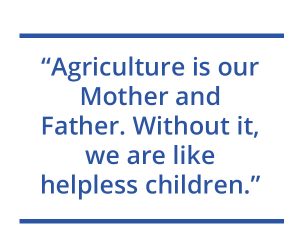
In the storm’s immediate aftermath, humanitarian agencies mobilized to respond to the population’s most urgent needs, including emergency aid, shelter, clean water and sanitation. Among them was the Waterloo, Ontario-based Foundation for International Development Assistance (FIDA), a registered Canadian charity that has worked to promote and support agricultural co-operatives in Haiti since 1984.
“When Hurricane Matthew hit, we were on the ground with our working arm in Haiti, productive cooperatives Haiti (pcH), promoting the co-operative model as an ideal infrastructure for rural communities to become self-sufficient, and providing coaching, agricultural training and reinforcement for more than 20 established co-operatives,” said Betsy Wall, FIDA’s Executive Director.
“When Matthew struck, the co-operatives we work with in the south west lost absolutely everything. They had no place to sleep, no water, no food. Their crops were lost. It was heartbreaking.”
Following the initial relief response, discussions between FIDA, pcH and the leaders of three co-operatives comprising approximately 3,000 members in the Grand’Anse Department focused on the development of proactive and participatory methods for the population to improve their long-term food security.
After consulting with co-operative members and engaging in a partner consortium led by a group of Canadian professionals in the agroforestry and international development sectors called “Foresters for Haiti”, the concept of the “The Kreyòl Garden” was born.
The project was proudly supported by the Gay Lea Foundation in 2019 with a $40,000 donation over two years (2019-2020).
What is The Kreyòl Garden? 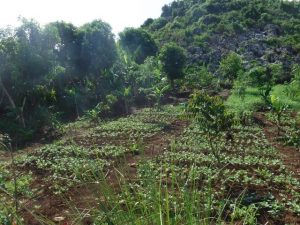
“The Kreyòl Garden” is an industry-driven agroforestry model for agricultural revitalization and enhanced food security in Grand’Anse.
In simple terms, it revolves around each co-operative planting a diversity of tree, orchard, and annual crop species on their own common plot of land. Over several years, one species replaces another to deliver immediate returns (e.g. vegetable crops), medium-term returns (e.g. fruit crops, nuts and coffee), and long-term returns (e.g. tree fibre).
As fruit trees and coffee come into production they replace vegetable crops. Forest trees, in turn, replace them while providing shade for coffee. Periodically, the garden is replicated elsewhere to provide for community needs. And, of course, there are eventually more trees on the landscape to restore natural ecological processes and provide ecosystem services.
Diverse agro-forestry systems such as these are known to be more robust and productive over long-terms, reducing the risks posed by insects and diseases and helping permanently restore vegetative landscapes. The project is designed to be scalable for every cooperative farmer to employ on their land space as a living example for others.
Project progress
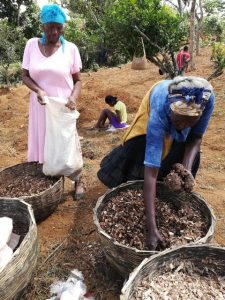 The Kreyòl Garden Project was introduced in Haiti as a three-year project in June 2017. To-date, two experimental farms have been established on land rented by co-operatives in Duchity and Georgette, with financial support from pcH. Protective fences have been constructed around the sites, field staff have been recruited, and a small drip-irrigation system has been acquired, allowing the co-operatives to focus on crops that were otherwise impossible to cultivate during periods when rain is scarce.
The Kreyòl Garden Project was introduced in Haiti as a three-year project in June 2017. To-date, two experimental farms have been established on land rented by co-operatives in Duchity and Georgette, with financial support from pcH. Protective fences have been constructed around the sites, field staff have been recruited, and a small drip-irrigation system has been acquired, allowing the co-operatives to focus on crops that were otherwise impossible to cultivate during periods when rain is scarce.
Seed trials have begun to identify new crop varieties that will improve returns through the production of high-yielding, short-cycle, disease-tolerant crops. Members of the community are also learning new techniques aimed at improving yields, including the the “minisèt” technique of yam multiplication.
Subsequent phases will involve continued seed and bean trials, a tree nursery for the production of fruit and forest trees, vegetable gardens and new fertilization techniques.
About the Foundation for International Development Assistance (FIDA)
Established by Jack and Anne Wall in 1980, FIDA is a registered Canadian charitable organization dedicated to fostering economic development and social transformation in rural Haitian communities through the productive agricultural co-operative model. Along with its working arm in Haiti, productive cooperatives Haiti (pcH), FIDA has received global acclaim for its participatory approach to sustainable development activities, offering solutions that allow the poorest of the poor to be at the centre of their own development. Along with pcH, the organization provides resources to men and women who are motivated to become invested shareholders in their own productive agricultural co-operative, promoting productivity, ownership and self reliance.
About the Gay Lea Foundation
The Gay Lea Foundation is the official registered charity and collaborative forum for Gay Lea Foods and its members, directors and employees to support families and communities in need. Since receiving charitable status in 2014, the Foundation has provided more than $957,000 in funding support for education, poverty relief and community well-being projects in Canada and around the world. The primary source of funding for the Foundation is an annual $150,000 contribution from Gay Lea Foods, which is supplemented by personal contributions from across the Gay Lea Foods family. Funding applications are assessed twice a year by the Foundation’s Board of Directors, which is comprised of Gay Lea Foods Directors, delegates, dairy producer members and employees.
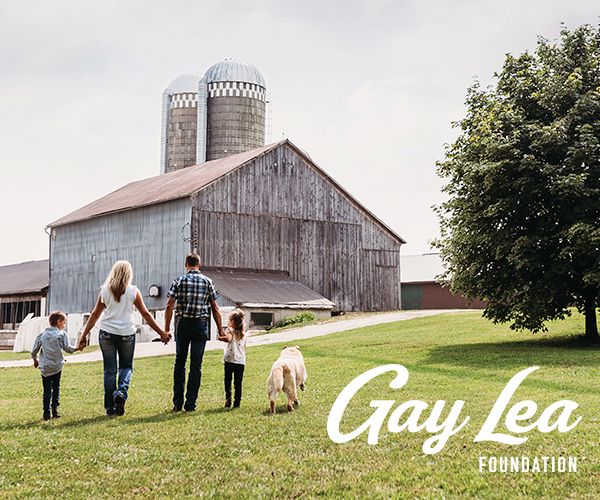
Feb 12, 2025
The Gay Lea Foundation today announced applications are now open for its Community Impact Grants program, supporting initiatives in education, health, wellness, poverty relief and sustainable agriculture...
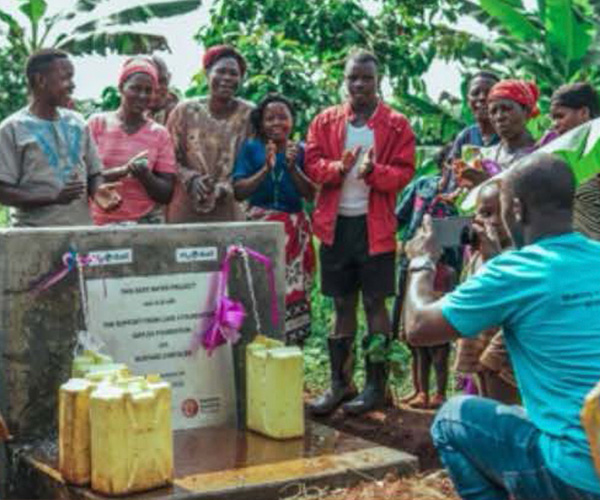
May 27, 2024
Residents of Lusera Village in Kenya celebrate the construction of a safe new water system made possible with support from the Gay Lea Foundation.

Dec 20, 2023
With the season of giving upon us, the Gay Lea Foundation is pleased to announce 10 new charitable grants supporting healthcare, poverty relief, and community well-being projects.
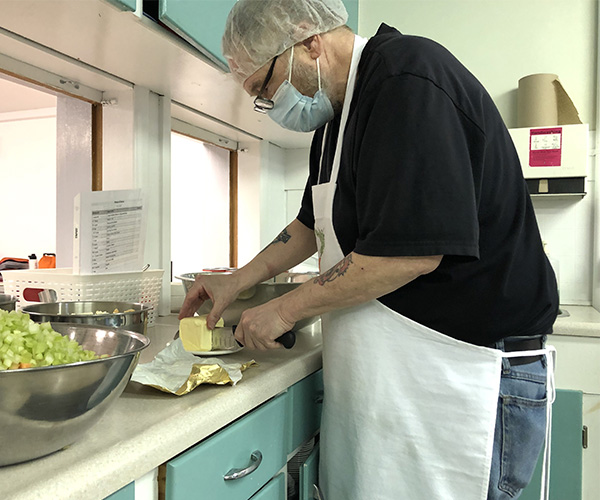
Sep 5, 2023
The Raw Carrot is a social franchise that believes that every person who WANTS to work should have the opportunity for a hand-up instead of just a handout in life.